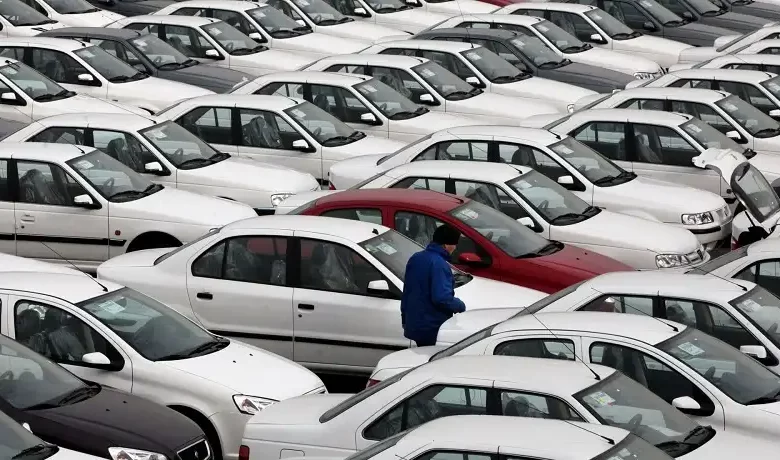Why is the government not interested in importing luxury cars?

According to Tejarat News, after more than four years have passed since the ban andCar rentalIt is expected that the first foreign cars will enter Iran within the next few months. Hoping to help a chaotic market suffering from monopolies and financial problems. Last week, the government of Ebrahim Raisi approved the law on the import of foreign cars. This law was passed more than four months after the government gave the green light to import cars.
Former President Hassan Rouhani officially banned the import of completely built vehicles (CBUs) in 1997, which meant that cars were imported as parts, rather than as an assembled unit. This decision was a reaction to the unilateral withdrawal of the United States from Iran’s 2015 nuclear agreement with world powers. The withdrawal followed by a wave of all-encompassing economic sanctions hit the country, leading to a currency crisis.
Quoted from Algeria, while major western partners were withdrawing from the Iranian market, Iran opened the doors to the import of non-assembled vehicles (CKD) from a variety of Chinese automakers. Since then, such cars have flooded the market. But a major part of the market is still under the control of a small number of domestic car manufacturers such as Iran Khodro. Although it has become difficult for customers to buy these cars due to the currency crisis.
Police officials and experts have considered some domestic cars as the cause of the very high rate of fatal road accidents in the country. Many unassembled imported cars from China could not be purchased by the Iranian middle class due to high import tariffs. These cars were sold to customers at prices much higher than the original price and sometimes double the original price to protect and encourage domestic car manufacturing.
The import of luxury cars is prohibited!
In this situation, some hoped that the new import regulation would lead to the entry of higher quality cars into the country. But the US sanctions, which continue to put pressure on Iran’s foreign exchange income, and the importance of the right price of cars, made the government not show interest in importing luxury cars.
One of these cases was the car import approval law, allocating a maximum of one billion euros ($1 billion) to imports through the Central Bank of Iran. Also, the requirement to import cars under 20,000 euros and emphasizing the priority of cars under 10,000 euros for better access to the middle class of the society were among the items of this resolution. This automatically causes many popular models of global brands to be removed. This means that a maximum of 100,000 cars will be imported to Iran.
According to the government, hybrid or all-electric vehicles can enter special industrial or commercial areas. But only if importers create car charging stations and invest in that sector. The government regulation also says that incentives will be provided for domestic manufacturers to import foreign technology and parts to improve domestic production.
The role of nuclear negotiations in car imports
The first cars are expected to enter the country in the coming months and before the beginning of 1402. The government, without specifying details, said that negotiations have been held with Western companies and companies operating in China and India. According to the government regulation, the way is also open for foreign investment. In this regard, it has been said that sedan cars can be imported through foreign investment. But only if they are to be used in the public transport sector.
But despite the potential capabilities, investors are rarely interested in investing in the Iranian market because they may be targeted by secondary US sanctions. Iran and the United States have been negotiating indirectly since April 2021 to revive their 2015 nuclear agreement. If an agreement is reached, most of the sanctions on Iran will be lifted in exchange for more restrictions on Iran’s program.
However, even if the nuclear agreement is reached again, Iranian officials have warned in the past few years that previous partners who abandoned their commitments in the Iranian market due to US sanctions will not be able to easily return to the Iranian market.
Deprivation of the private sector
Ali Khosravani, the owner of one of the largest car sales and service companies, says: “While the resumption of imports is a positive step, the government’s conditions for importing new cars are very strict and limited.” In an interview with Al Jazeera, he said: “The same amount is good, but Iran is missing several important opportunities in the market.” Khosravani explained that this movement can have a positive psychological effect on middle-class consumers. They may not necessarily be looking to buy, but they welcome the re-entry of new models into the market.
Khosravani With Hint To Condition Governmental other one That Importers particle for direct object Must To get Permissions Direct Importation From Manufacturers Foreign he does, said: “This regulations To the part private written not done Is, So some From the same companies That earlier With Brands Foreign Contract Closed They were they can Import the car again do give”.
Imports could have represented an opportunity to improve the mid-range car market, he said, but price caps and other constraints prevented that. Khosravani said that more affordable prices in the Iranian car market mainly depend on the revival of the nuclear agreement, which will have a great impact on the exchange rate and diversity in the market.
He said about his proposed plan, “If I were you, I would make imports free for everyone so that all natural and legal persons can import cars.”

